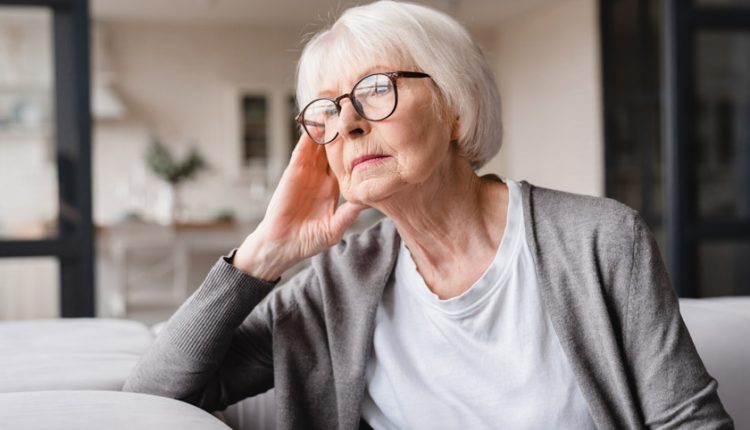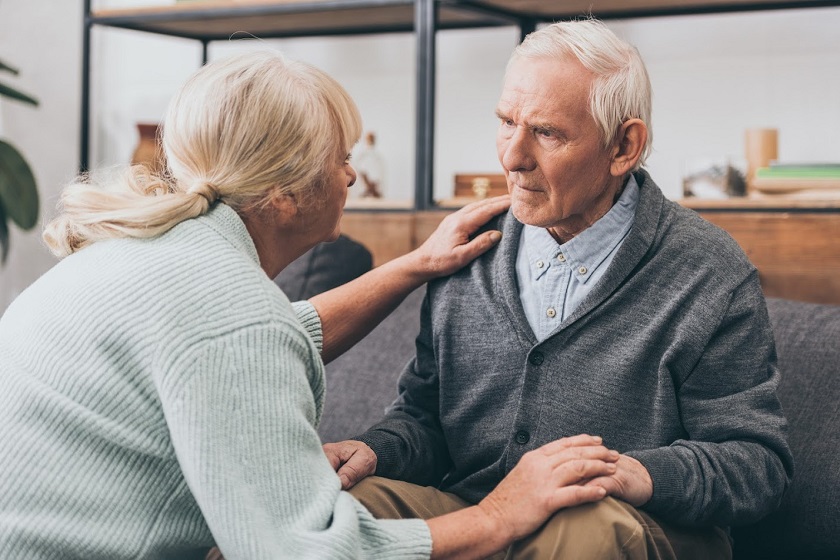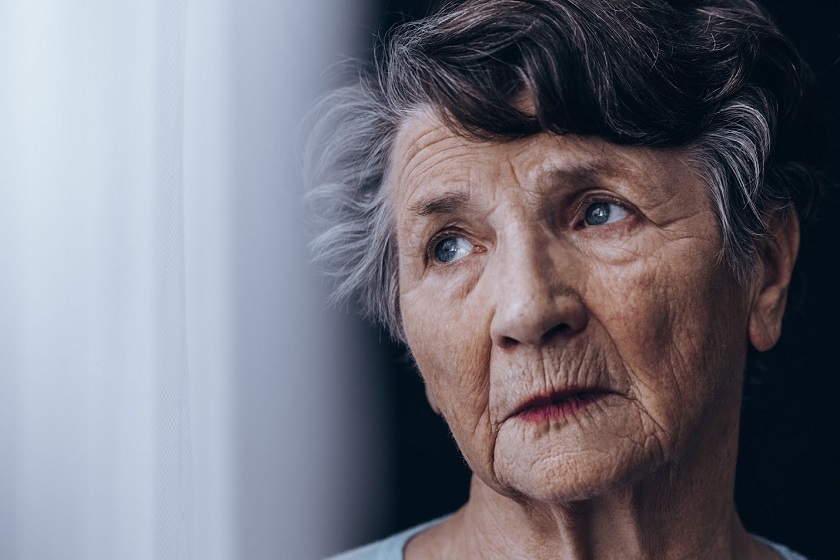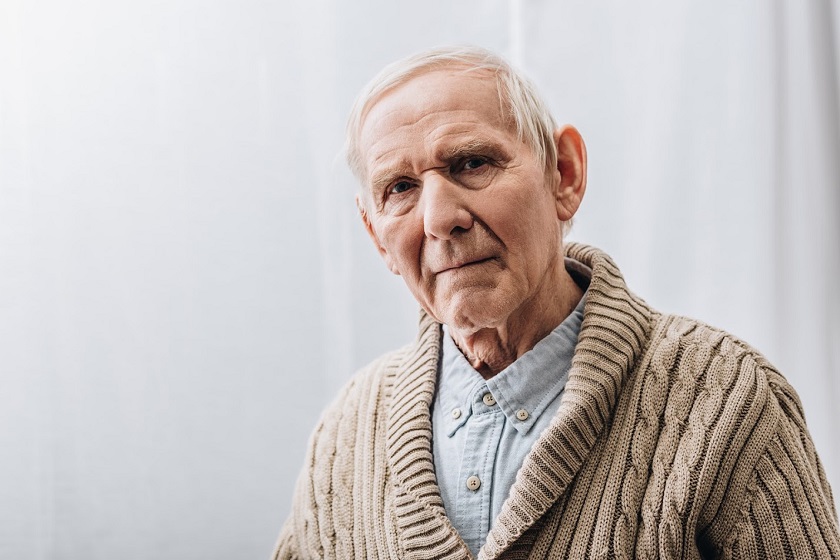
What Are the Symptoms of Depression in Older Adults
Depression in older adults is not uncommon, but that does not mean it is a normal part of ageing. About 6 million Americans aged 65 and up suffer from late-life depression. However, just 10% receive treatment. The most likely explanation is that older individuals often exhibit various symptoms of depression. Several medical conditions and the medications used to treat them might lead to a false diagnosis of depression in seniors.
Now, Let’s dive into the subject and see how different depression is in older and young adults.
Contents
How Does Depression Differ in Older Adults Than in Younger Adults?
Depression affects older people in a different way than younger people. It is more common in older adults, and it lasts longer.
Depression in seniors raises the danger of heart disease and other illnesses that can lead to death. Simultaneously, depression impairs an older adult’s ability to recover.

According to studies of nursing home patients, the existence of depression significantly increases the chance of dying from those conditions. Additionally, there is evidence linking depression to an increased likelihood of dying from a heart attack. As a result, even with moderate depression, you must ensure that your senior loved one receives the proper care and treatment.
The primary question is, how can you recognize depression in a senior?
Depression Symptoms and Signs in Older Adults
There are four categories for depression symptoms in older adults: Behaviours, Thoughts, Feelings, and Physical Signs.
Behaviours
- General sluggishness or restlessness
- Neglect of responsibility and self-care
- Isolation from family and friends
- Decrease in day-to-day functioning
- Inability to find enjoyment in any activity
- Having trouble getting motivated in the morning
- Acting inappropriately
- Denial of depressive emotions as a defence mechanism
Thoughts
- Indecisiveness
- Low self-esteem
- Recurrent suicidal thoughts
- Negative remarks such as “I’m a failure,” “It’s my fault,” or “Life isn’t worth living.”
- Excessive anxiety about the financial status
- Perceived decrease in family status
Feelings
- Moodiness or irritation, which can manifest as angry or violent behaviour
- Confusion, anxiety, and agitation
- Sadness, despair, or emptiness
- A tendency to get overwhelmed easily
- Having a sense of insignificance or guilt
Physical Signs
- Sleeping more or less than normal
- Constant fatigue
- Slower movement
- Memory issues
- Unexplained headaches, backaches, soreness, or other complaints
- Changes in bowel habits, digestive problems, and nausea
- Pacing, agitation, and hand wringing
- Appetite loss or change
- A significant change in weight

Depression in Seniors: What Causes It?
As we get older, we usually experience significant life changes that can put us at risk for depression. Below are a few examples:
- Health conditions. Illness and incapacity, persistent or severe pain, cognitive decline, and altered body image resulting from surgery or illness are all potential causes of depression.
- Isolation and loneliness. Living alone, a diminishing social circle owing to deaths or relocation, limited mobility due to sickness or losing driving privileges can all result in depression.
- A decreased sense of purpose. Retirement can result in a loss of identity, status, self-esteem, and financial security and an increased risk of depression. Physical limits on previously enjoyed activities can influence your sense of purpose.
- Fears. These include anxiety concerning death or dying and worrying about money, health, abuse or neglect.
- Recent funerals. Deaths of friends, family members, and pets, as well as the death of a spouse or partner, are significant causes of depression in older adults.

What Factors Put Older Adults at Risk for Depression?
The following factors increase the likelihood of depression in older people:
- Being female
- Being unmarried, single, divorced, or widowed
- The absence of a supportive social network
- Life’s stressful events.
Medical Conditions That Can Lead to Depression in Older Adults
Understanding physical issues that can directly or indirectly induce depression in older adults is essential. Any chronic medical condition, excruciating, disabling, or life-threatening, can cause or worsen depression. These may include:
- Parkinson’s disease
- Stroke
- Heart disease
- Cancer
- Diabetes
- Thyroid disorders
- Vitamin B12 deficiency
- Dementia and Alzheimer’s disease
- Lupus
- Multiple sclerosis (MS)
When Should You Seek Professional Help?
Depression treatment is equally as beneficial for older folks as it is for younger people. Any treatment plan, however, must consider that a traumatic event or ongoing struggle typically serves as a catalyst for or exacerbates depression in the elderly.
For example, taking medication alone won’t help you recover from depression if loneliness is the cause of your condition.
Risk Factors for Antidepressants
Older adults are more prone to drug side effects and combinations with other medications. Studies have also shown that SSRIs, such as Prozac might accelerate bone loss and increase the risk of fractures and falls. Given these potential risks, keeping a close eye on older people taking antidepressants is crucial.
In many cases, therapy and healthy lifestyle improvements, such as exercise, can be as helpful as antidepressants in alleviating depression without the risk of side effects.

Therapy and Counselling
Basically, therapy is effective for depression because it targets the underlying causes rather than the symptoms.
- Peer and religious counselling are both a part of supportive therapy. It can help you find new meaning and purpose by easing the loneliness and hopelessness associated with depression.
- Therapy can help you cope with severe life changes, heal from losses, and process unpleasant emotions. It can also assist you in changing negative thought patterns and developing better-coping skills.
- Support groups for depression, illness, or grief bring you together with people experiencing similar difficulties. They provide a safe environment for those who want to share their stories, advice, and encouragement.
Final Words
When a loved one is going through depression, the most important thing is to show them they’re not in this alone. But how can friends and family members help someone with depression?
Here’s what we suggest:
- Depression exhausts people quickly. Try to provide some practical help, such as shopping or cleaning for them. They may need a reminder to eat healthily.
- Don’t compel them to speak. Being around someone is beneficial, but not if it forces your loved one into unwanted interactions.
- Be patient. Depression might cause someone to constantly seek reassurance or believe there is nothing physically wrong with them. It is because they’re scared or don’t understand what’s happening. Reassure them as much as possible, and try to spend time listening to them.
- Don’t be hesitant to ask if they’ve ever thought about suicide. When you ask people about their feelings, they get relieved. Talking about it will help.
- Finally, when someone is depressed, be cautious about making housing arrangements. They may put you under pressure and claim that how they feel depends entirely on where they live. However, things are rarely that simple. When people are depressed, they may regret moving. Keep in mind that social services may be able to assist you with self-care, meals, and finances.
Do you have any experience with an older adult suffering from depression? Please share your story with us in the comments.
Reading this article helped me understand more about the symptoms of depression in older adults and what we can do to help. Thanks a lot!
My grandfather passed away a few years ago, and looking back, I realize he may have been suffering from depression. It’s essential to recognize the signs and symptoms of depression in older adults so that we can provide them with the care and support they need. I appreciate the helpful information in this article and the suggestions for how to help loved ones who may be struggling with depression.